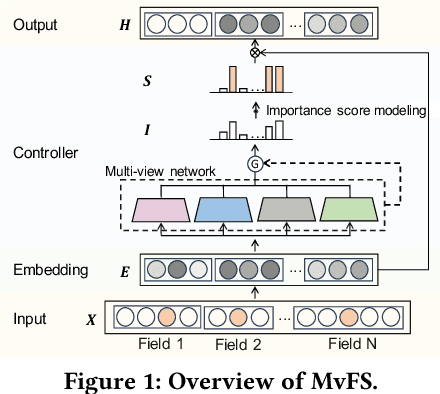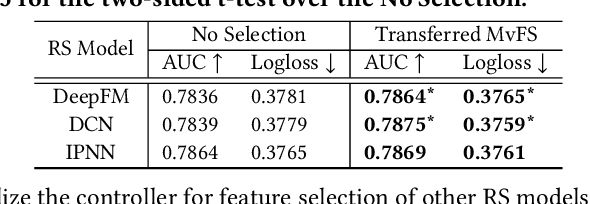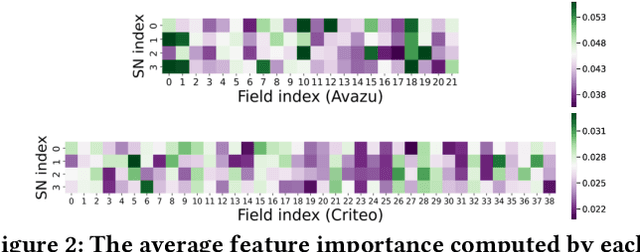MvFS: Multi-view Feature Selection for Recommender System
Paper and Code
Sep 06, 2023



Feature selection, which is a technique to select key features in recommender systems, has received increasing research attention. Recently, Adaptive Feature Selection (AdaFS) has shown remarkable performance by adaptively selecting features for each data instance, considering that the importance of a given feature field can vary significantly across data. However, this method still has limitations in that its selection process could be easily biased to major features that frequently occur. To address these problems, we propose Multi-view Feature Selection (MvFS), which selects informative features for each instance more effectively. Most importantly, MvFS employs a multi-view network consisting of multiple sub-networks, each of which learns to measure the feature importance of a part of data with different feature patterns. By doing so, MvFS mitigates the bias problem towards dominant patterns and promotes a more balanced feature selection process. Moreover, MvFS adopts an effective importance score modeling strategy which is applied independently to each field without incurring dependency among features. Experimental results on real-world datasets demonstrate the effectiveness of MvFS compared to state-of-the-art baselines.
 Add to Chrome
Add to Chrome Add to Firefox
Add to Firefox Add to Edge
Add to Edge